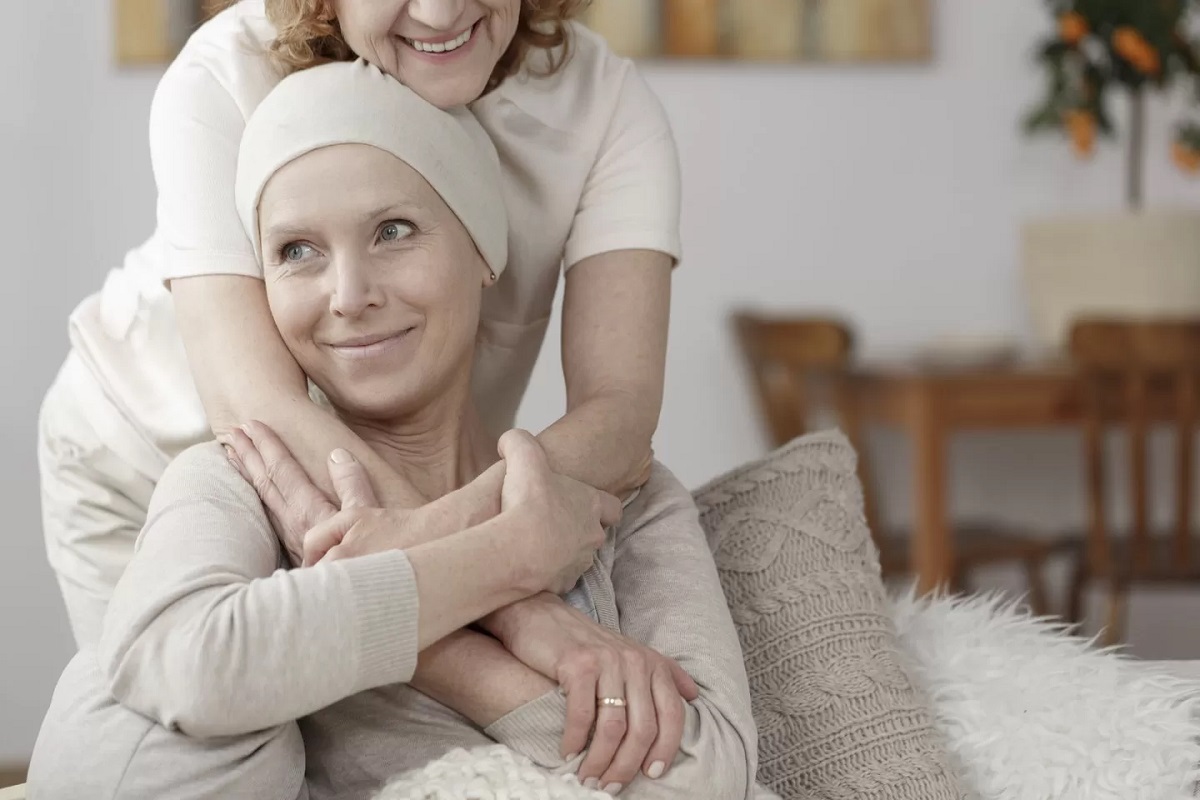Undiagnosed Depression In Cancer Patients: A Major Gap In Care

Depression In Cancer Patients: About one-third of cancer patients struggle with depression, anxiety and other mental health disorders. Ignoring these feelings can have significant costs.
Simone Webster always struggled with her emotions and mood swings. But the floodgates really opened last year when she was diagnosed with breast cancer at 31 years old. “There must have been something I did,” said Webster, her eyes watery. “What did I do to cause this?”
The depression came in waves, a deep hopelessness overwhelming Webster, now 33, and making her feel like she needed to escape reality. “There’s so much you lose,” Webster said, including her right breast, her boyfriend and her chance of having kids. “It feels really dumb to feel hopeful.”
About a third of cancer patients struggle with depression, anxiety and other psychiatric disorders, although these conditions often go undetected and undiagnosed. Kristin Kilbourn, a clinical psychologist at the University of Colorado Denver, said oncologists often don’t want to open up this “can of worms,” not to mention that mental health has long been deprioritized, with health care centers losing money caring for psychiatric patients.
But this neglect comes at a significant cost, with mortality rates up to 39% higher among cancer patients with depression when compared to those without mental illness. Research also shows that the risk of suicide is 13 times higher in the week following a cancer diagnosis — and three times the average even a year later.
As Webster knows well, cancer’s toll isn’t limited to the body; it wages war on the mind too. While physicians and cancer centers have slowly increased mental health services, it’s often up to patients to fill in gaps in care by advocating for themselves and proactively seeking out mental health support.
“There’s so much you lose,” Webster said, including her right breast, her boyfriend and her chance of having kids.
“Your oncologist is not going to identify your mood swings for you,” Webster, of Washington, D.C., said. “They don’t know if you’re having suicidal ideation or depressed unless you tell them.”
This article was originally published on NBC News!
Cancer is a life-altering diagnosis that affects not only the body but also the mind. While medical advancements have improved survival rates and treatment outcomes, one of the most overlooked aspects of cancer care is the mental health of patients. Depression in cancer patients is not only common but also frequently undiagnosed, leading to severe consequences for treatment adherence, quality of life, and overall prognosis. Addressing this gap in care is critical for holistic cancer treatment.
The Prevalence Of Depression In Cancer Patients

Studies indicate that up to 25% of cancer patients experience major depression, while a significant portion suffers from subclinical depressive symptoms. However, due to a lack of routine screening and the overlap of symptoms between cancer and depression, a large number of these cases go undetected. The emotional distress stemming from a cancer diagnosis, combined with the physical burden of treatment, creates a complex psychological challenge that many patients struggle to cope with in silence.
Why Depression Often Goes Undiagnosed In Cancer Patients
Symptom Overlap
Cancer and its treatments cause fatigue, changes in appetite, sleep disturbances, and cognitive impairment—symptoms that are also common in depression. This overlap makes it difficult to differentiate between physiological effects of cancer and clinical depression.
Focus On Physical Health
Oncology teams are primarily focused on treating the disease itself, often placing less emphasis on emotional and psychological health.
Stigma Surrounding Mental Health
Many patients feel reluctant to discuss their emotional struggles, fearing they may be perceived as weak or as a burden to their families and medical teams.
Lack Of Routine Mental Health Screening
Unlike other chronic illnesses, cancer care does not always integrate mandatory depression screenings, resulting in many cases going unnoticed.
Misattribution Of Symptoms
Some healthcare providers may misattribute a patient’s emotional distress to a natural response to cancer rather than recognizing it as a treatable mental health condition.
The Consequences Of Undiagnosed Depression In Cancer Patients
Failure to diagnose and treat depression in cancer patients has profound effects on their health outcomes, treatment compliance, and overall well-being.
Reduced Treatment Adherence
Patients with untreated depression are less likely to follow their prescribed treatment plans, including chemotherapy, radiation, and medications. This non-adherence can lead to disease progression and lower survival rates.
Lower Survival Rates
Research suggests that patients with depression may have a 30% increased risk of mortality due to factors like compromised immune function, poor self-care, and treatment non-compliance.
Increased Pain Perception And Physical Distress
Depression has been linked to higher levels of inflammation, which can exacerbate cancer-related pain and fatigue. Patients who are depressed may also report more severe symptoms than those who are not.
Diminished Quality Of Life
Cancer patients with undiagnosed depression often experience social withdrawal, difficulty maintaining relationships, and loss of interest in activities they once enjoyed.
Higher Risk Of Suicide
Studies show that cancer patients are at an increased risk of suicide compared to the general population, particularly within the first few months of diagnosis.
Addressing The Gap: Solutions And Strategies

To improve cancer care and ensure better patient outcomes, addressing the gap in depression diagnosis and treatment is essential. Some key strategies include:
Routine Depression Screening
Implementing validated screening tools, such as the Patient Health Questionnaire (PHQ-9) or the Hospital Anxiety and Depression Scale (HADS), in oncology settings can help identify at-risk patients early on.
Integrated Mental Health Services
Cancer treatment teams should include psychiatrists, psychologists, or licensed therapists to provide immediate intervention when necessary.
Training For Healthcare Providers
Oncologists and nurses should receive training to recognize depressive symptoms and refer patients for appropriate mental health support.
Patient And Family Education
Educating patients and their families about the mental health impact of cancer can help reduce stigma and encourage open conversations about emotional struggles.
Access To Support Groups And Counseling
Providing access to peer support groups, cognitive-behavioral therapy (CBT), and other psychological interventions can significantly improve a patient’s coping mechanisms and resilience.
Pharmacological And Non-Pharmacological Interventions
For moderate to severe depression, antidepressant medications may be prescribed alongside psychotherapy to improve mood and functionality.
Complementary therapies such as mindfulness, yoga, and relaxation techniques can also be beneficial.
Final Thought
Depression in cancer patients remains one of the most significant yet frequently overlooked gaps in treatment. The failure to diagnose and treat depression not only worsens patient outcomes but also affects survival rates, treatment adherence, and overall quality of life. Implementing routine mental health screenings, integrating psychological care into oncology, and fostering an open dialogue about emotional well-being are critical steps in bridging this gap. By addressing the mental health needs of cancer patients, healthcare providers can offer a truly holistic approach to cancer treatment, ensuring that patients receive the care they need for both their bodies and minds.
Also Read:
New Treatments Are Needed For Alcohol Addiction. Are Drugs Like Ozempic A Solution?
Understanding Chronic Fatigue: Why Do Some People Feel Tired All the Time?
Three Hidden Signs Of Cervical Cancer You Should Never Ignore




